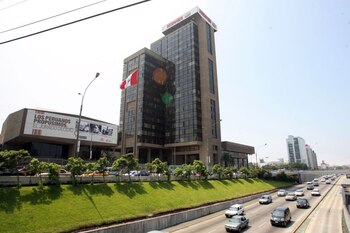
PetroPeru has a new general manager, Fernando de la Torre, who took office after the irrevocable resignation of the questioned Hugo Chávez following criticism of his management and the refusal of the Ministry of Economy and Finance to support the administration and board of the oil company.
De la Torre takes office amid the state oil company losing investment grade, moving from investment grade to speculative or “junk” debt by Standard & Poor's Global Ratings (S&P).
However, problems remain within the institution, because a new Shareholders' Meeting has been convened to give full support to de la Torre, an official close to the resignant Chávez and who would have agreed with the wording of the confidentiality clause that Petro-Peru demanded to sign PricewaterhouseCoopers and that led to the resignation of this company from auditing the oil company's financial statements.
The new Shareholders' Meeting would take place on 25 and 29 March with the intention that the Ministry of Economy and Finance would support the administration of the new manager.
According to the document, these meetings will discuss “absolute support for Petro-Peru by the MEF”, even though the MEF reported on March 17 that neither Minister Óscar Graham, nor the Deputy Minister of Finance, Betty Sotelo, have supported the oil company's administration or board of directors.
Luis Miguel Castilla, former Minister of Economy, told RPP that a “profound change” of the Board of Directors and the general staff of PetroPeru is necessary to solve the crisis in the state company.
“This is not resolved by changing people, there is a Board to begin with that has to answer for the actions of a collegiate and also a team that came in with Mr. (Hugo) Chávez and must respond to everything that has been done in recent months,” Castilla said.
He also stressed that “this episode denotes a strong weakness in the corporate governance of the company, and something unusual is that the audited financial statements are not published. This has triggered the reduction and passed its qualification to a speculative degree.”
Álvaro Ríos, senior partner of Gas Energy, argues that “this is the right time to talk about an armour of PetroPeru, that is, to provide it with a corporate governance with a mixed board that can hold its position for a fixed period of time, and which is immovable by the political power of the day.”
Pablo Lavado, economist and former deputy minister of benefits and health insurance, said that the message continues to be given that state capacities to do business are “primitive”.
“One expects a strengthened state company, with technical staff and above all to be managed with transparency. It is rare that the Ministry of Energy and Mines (Minem) is seen to press the Ministry of Economy and Finance (MEF) to take a position within the directory,” he said.
KEEP READING
Últimas Noticias
Debanhi Escobar: they secured the motel where she was found lifeless in a cistern

The oldest person in the world died at the age of 119

Macabre find in CDMX: they left a body bagged and tied in a taxi
The eagles of America will face Manchester City in a duel of legends. Here are the details

Why is it good to bring dogs out to know the world when they are puppies



